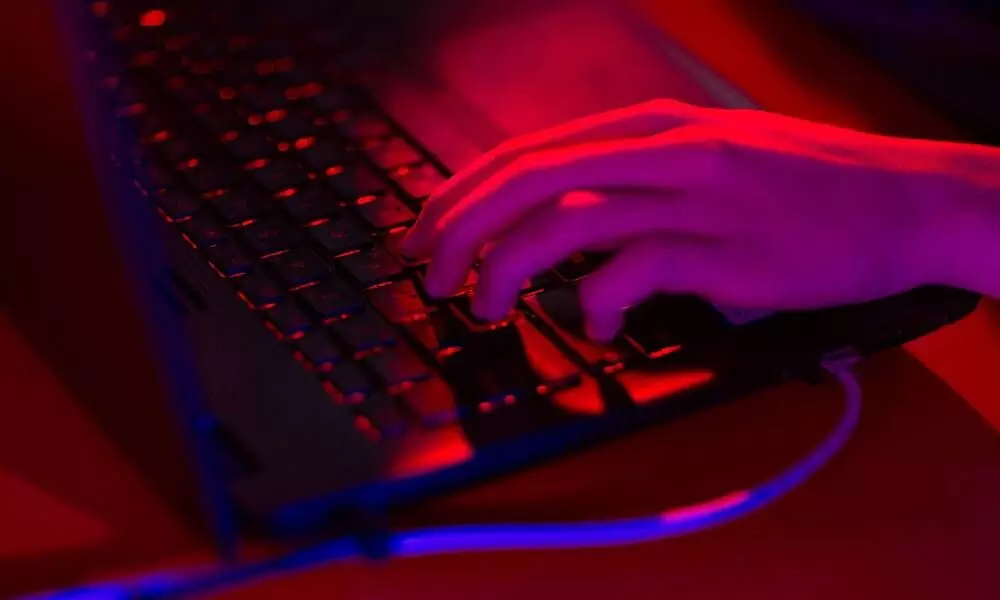Post-Covid: Can we let autocrats run Internet?
There’s a pattern of escalation. Last month, just days after Russia’s security services arrested two Belarusians and accused them of planning an uprising, Minsk said it had foiled a “coup” discussed on video-conferencing app Zoom
image for illustrative purpose

THE Covid-19 pandemic has shown us two sides of technological progress. There's the positive side that's delivered safe and effective vaccines in record time, helped economies with new stay-at-home online tools and improved disease surveillance and public health.
And there's the negative side that's turbocharged malicious actors' and authoritarian regimes' disinformation campaigns, hacking and disruption of opponents, and fostered a rise in public harms like ransomware attacks and fraud.
It's this grim reality that the West must tackle as economies reopen, and the G7 summit next month is a perfect time to do it. Cyber threats have been warned about over the past year, but the scale and reach of the problem are hitting new heights. The US and Europe have accused China and Russia of stepping up information warfare — from Covid-19 conspiracy theories to misleading information about vaccines — and cyberattacks on Western targets, while further restricting their citizens' liberties at home.
Freedom House, which last year found 75 per cent of the world's population lived in a country experiencing democratic decline, says the pandemic has cast a "digital shadow."
There's no easy fix. Russia, for example, has left countries such as the UK fuming as it fails to go after cybercriminals on its turf.
Moscow and Beijing's push for digital "sovereignty" has emboldened authoritarian regimes, as seen in Belarus's shocking forced landing of a Ryanair flight last week. The roots of this crisis, which has opened a new rift between the West and strongman Alexander Lukashenko, who enjoys Vladimir Putin's backing, lie in information warfare.
Lukashenko's ostensible target was 26-year-old Raman Pratasevich, an exiled journalist and former editor of opposition media Nexta, which operates through encrypted messaging app Telegram.
There's a pattern of escalation. Last month, just days after Russia's security services arrested two Belarusians and accused them of planning an uprising, Minsk said it had foiled a "coup" discussed on video-conferencing app Zoom. Belarus authorities have blocked websites and restricted internet access since Lukashenko's widely contested re-election in August (deemed by the EU to be neither free nor fair), and his Kremlin backers have lent their support.
The "skyjacking" sends the message that Minsk's online critics aren't safe anywhere, even in exile. It fits neatly with Lukashenko's persistent siege mentality as he whips up the threat of "hybrid" online-offline warfare supposedly being waged by the West.
Crafting a strategy will require going beyond past language advocating "Internet freedom." The drama around Belarus deserves its own response beyond necessary sanctions, and the EU and U.S. should aim for more solidarity with Belarusian civil society (and journalists-in-exile similar to Pratasevich) with more funding and support.
Clara Ferreira Marques: The EU Has to Come Down Hard on Belarus — And Fast
Political risk consultant Katia Glod says independent media need support to respond to continuous fines, to counter disinformation and launch alternative websites. As Tadeusz Giczan, Nexta's current editor-in-chief, told the New Statesman, attempts to raise money via grants have been unsuccessful in the past, leading to financial difficulties.
More resources to improve digital literacy would also help: Journalist Hanna Liubakova says independent media will benefit from more tools to combat censorship, whether via virtual private networks, mirroring websites — a way of replicating content via a different server and domain name to circumvent blocking — or other tools.
The West should also mount a broader effort to undermine malicious online actors while helping virtuous ones. This means taking better care to ensure surveillance technology isn't exported to repressive regimes. Lukashenko's government blocked much of the internet during protests last summer with the help of technology from US-based Sandvine Inc. The company eventually canceled its deal with Belarus, but only after Bloomberg News reported on it. Sandvine's tools had been used to censor the internet in more than a dozen countries in recent years.
The G7 should also name and shame suspected cybercriminals and threaten retaliation for countries that persistently refuse to punish them. It should pour more resources into policing anonymous darknet markets where crime-as-a-service and Covid scam merchants prosper, enabled by pseudonymous cryptocurrencies.
This won't be an all-or-nothing pitched battle between privacy and security. The U.S. and Europe are reluctant to simply let the market decide where consumer eyeballs and data go.
One of the best-known anti-censorship tools, the Tor anonymity network, has an obvious dual use: It houses both criminal marketplaces and licit activity wanting to escape prying eyes. Funded historically by US government agencies, Putin in 2014 offered more than $100,000 for a way to de-anonymize it to get at political dissidents. He was rebuffed. Research by Virginia Tech's Eric Jardine has shown how the benefits of Tor are clustered disproportionately in countries deemed not free or partially free, while its harms cluster in democracies.
If liberal democracies don't craft a coherent strategy that benefits good actors while harming bad ones, the pandemic's digital shadow will be a long one.(Bloomberg)

